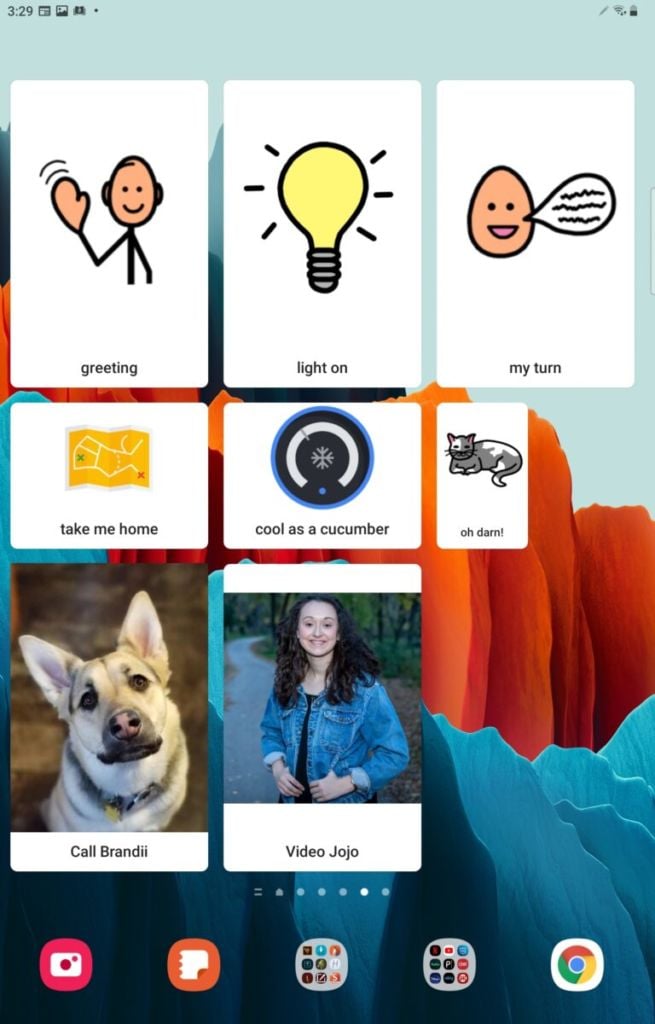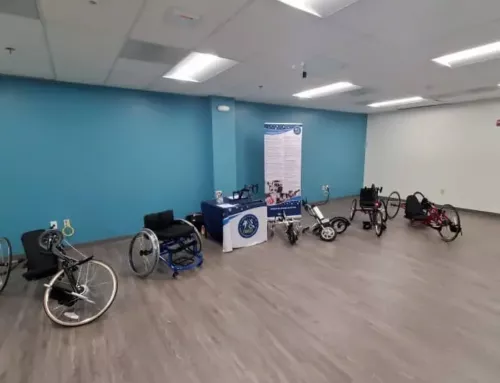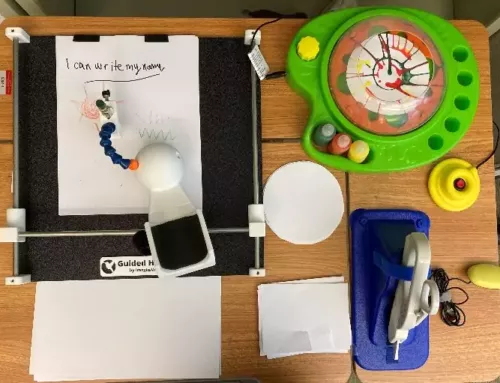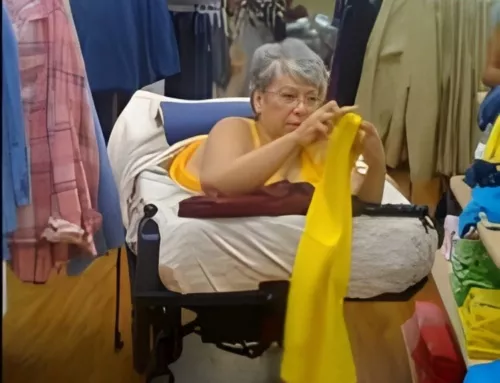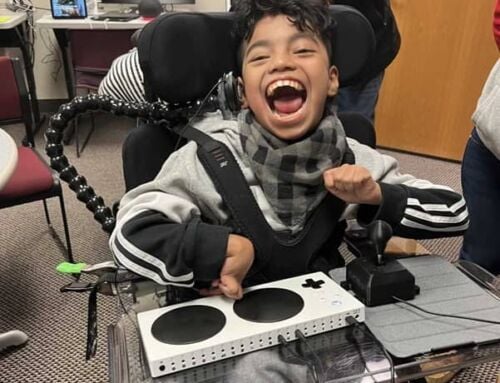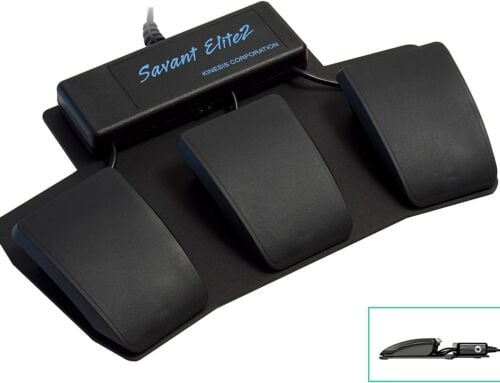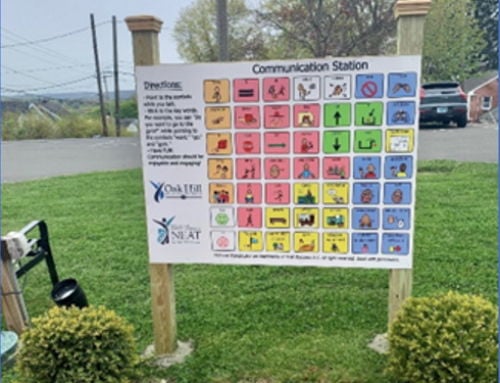AT Act Programs Support AT Access with Medicaid Waivers
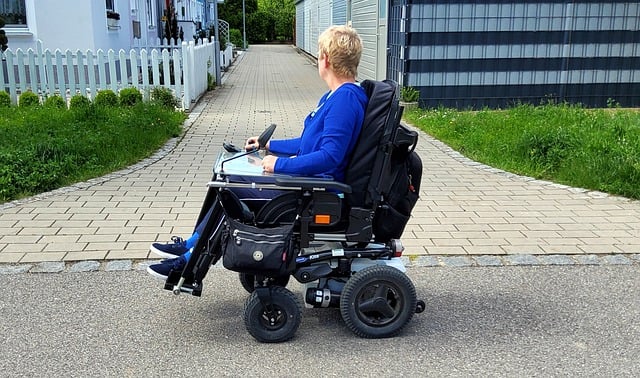
State and Territory Assistive Technology (AT) Act Programs are helping older adults and individuals with disabilities access Medicaid-funded AT to leave or avoid medical or long-term care facilities.
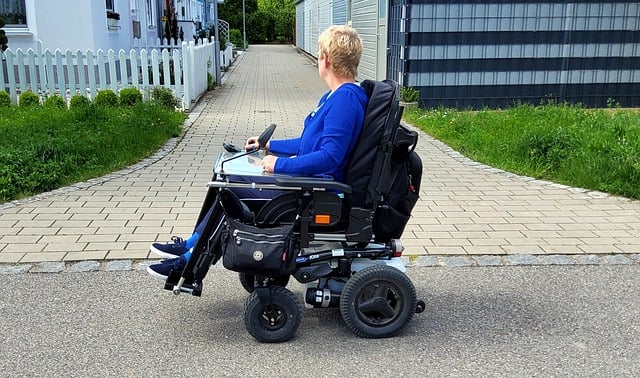
Across the country, AT Act Programs are engaging with their Medicaid waiver agencies to support policy development, training, technical assistance, and outreach for AT access with Home and Community-Based Services waivers. From durable medical equipment and vehicle modifications to home automation and tablet computers, AT is supporting the safety and independence of older adults and persons with disabilities to remain in or move back to their communities.
Spotlight On Home and Community-Based Waiver Activities:
Missouri:
The Missouri Department of Mental Health (DMH) provides expansive access to assistive technology for children and adults through its four 1915 (c) Home and Community-Based Services waivers. The range of assistive technology available includes home automation devices, iPads with AAC apps, text-to-speech software, electronic enlarging devices, and also AT services. As Missouri’s waivers have evolved, so has the role of the Missouri Assistive Technology Program (MoAT). When the waivers were first under development, MoAT provided technical assistance and helped create the application process for AT. In recent years, MoAT has provided guidance to case managers and others on appropriate devices, as well as served as a conduit to help purchase AT using waiver funds. And then before the pandemic, the state of Missouri made another commitment, becoming one of a handful of Technology First states. As a result, MoAT is once again engaged in policy development and guidance with DMH. “From concept to the current day, Missouri Assistive Technology (MoAT) and DMH have worked in tandem to connect individuals and families to assistive technology through the available waivers,” says MoAT Director David Baker.
Massachusetts:
The Massachusetts AT Program, MassMATCH, has focused on outreach, training, and screening to make sure older adults and persons with disabilities who are eligible for the Massachusetts HCBS waivers can move out of facilities and back home to their communities. In 2007 and 2008, MassMATCH created TACLE—Transition Assistance to Community Living Environment—to ensure that no one who wants to move home cannot for lack of a wheelchair, grab bar, or other AT. MassMATCH partnered with Easter Seals and the Metro West Center for Independent Living to create a simple-to-use AT “assessment tool.” The tool helps case managers, social workers, healthcare providers, and other related professionals determine an individual’s needs for AT and AT services. It also creates an effective protocol for making referrals for comprehensive AT services. Trainings on the use of the tool were provided to staff at Independent Living Centers, Aging and Disability Resource Centers, supported living programs, brain injury programs, and state Medicaid agency waiver personnel who provide transition assistance to individuals with disabilities and older adults. Waves of trainings took place in 2009, 2014, and 2018. “TACLE’s goal is to lay a foundation for system-wide access to AT where it is needed the most: helping to bring adults with disabilities and seniors back to their home communities,” says MassMATCH Program Coordinator Kobena Bonney.
North Dakota:
In 2015, the North Dakota AT Act Program, ND Assistive, began working with the North Dakota Department of Human Services to improve the state’s Home and Community-Based Services waiver serving older adults and persons with disabilities. Although ND has multiple HCBS 1915 (c) waivers, this was the only waiver that did not cover AT assessments (for “specialized equipment”). The amendment was made in 2017, and ND Assistive has since become a Qualified Service Provider to ensure waiver-eligible consumers have access to the expertise they need to obtain devices appropriate to their abilities and contexts. Now ND Assistive is working to streamline the process for acquiring AT. “It’s appropriate that we provide the full process,” says ND Assistive Director Jeannie Krull. “Not just the assessment, but equipment purchase, set up, and training so that—for the consumer—nothing gets lost in between.”
Download the AT3 Center Issue Brief on HCBS Waiver Activities
Monthly Blog Digest
Search the blog
State AT Program Blogs
California
Florida
Indiana
Kentucky
Louisiana
Maryland
Massachusetts
Michigan
Montana
North Carolina
North Dakota
Utah
State AT Program Blogs
The AT3 Center, the Association of AT Act Programs (ATAP), and the Administration on Community Living (ACL) make no endorsement, representation, or warranty expressed or implied for any product, device, or information set forth in this blog. The AT3 Center, ATAP, and ACL have not examined, reviewed, or tested any product or device hereto referred.

